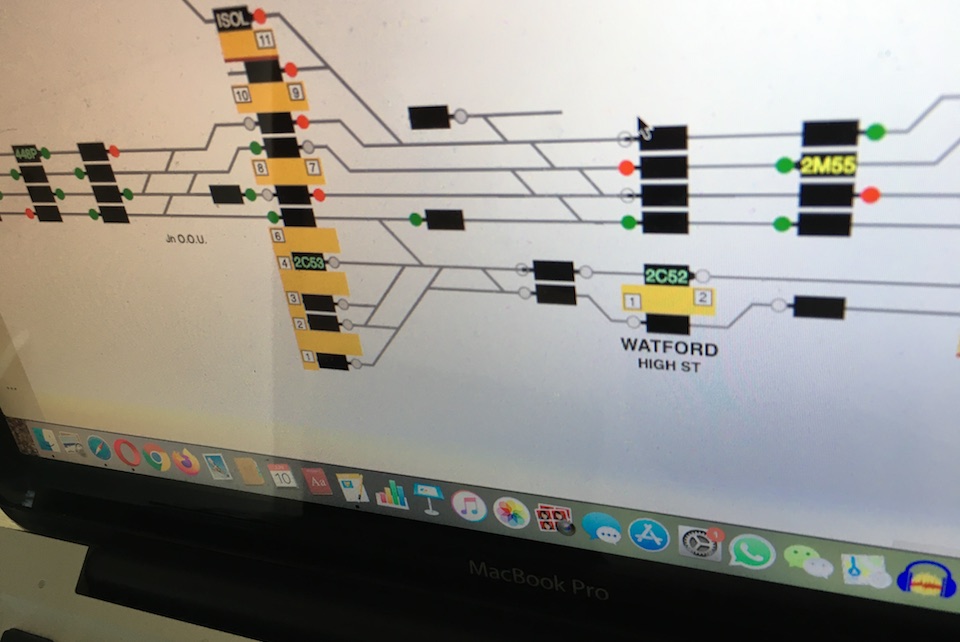Tech-led solution to freight capacity issues

Dynamic Freight Capacity Management. A mouthful but a better way to schedule available paths. More capacity for rail freight, say specialists in the field 3Squared. An independent industry funding body agrees, and has put cash into the concept.
A consortium led by Sheffield-based railway technology company 3Squared has won industry funding to develop an innovative solution to help rail freight plan short term availability of paths more effectively.
Capacity exchange
The award comes from the industry-supported independent rail research body RSSB, formerly the Rail Safety and Standards Board. It will help industry explore using data to improve performance and manage short term planning more efficiently. It is part of a bigger award scheme, designed to find innovative answers to performance challenges on the UK network.

Explaining the thinking behind their ‘Dynamic Freight Capacity Management’ (DFCM) software, 3Squared managing director, James Fox said that the concept of sharing paths between operators, regulators and infrastructure agencies was rather more complex a task than might be considered ideal. “Capacity exchange between operators should be easier. If it were, we could use spare capacity more efficiently, and not leave a booked path empty. We could also find efficient ways to route freight trains, ideally without multiple stops for pathing, which is expensive and environmentally inefficient.”
Reliving pressure on administrators
Over the coming months, Fox says, the UK rail network will be under pressure, navigating the post-pandemic landscape. “There will be particular pressure on administrators and timetablers, so anything that can help with unusual or ad-hoc operations will be more valuable than ever.”
At present, a sizeable proportion of scheduled freight train paths, say 3Squared, are either unused or cancelled, but repurposing them at short notice is difficult and expensive. The industry-wide VSTP (Very Short-Term Planning) system, is the only existing option, but this is currently a manual process and is time consuming, and often undertaken in time-pressured circumstances.
Consortium of tech and ops
The consortium led by 3Squared includes operators Rail Operations Group and Freightliner. Andy Worrall, production director at Freightliner, was looking forward to exploring the software solution. “The current VSTP process requires complex planning taking valuable time and resources, Freightliner are fully supportive of this project, and I look forward to personally committing time and effort to ensure its success.”

DFCM will also provide train planners with a historical record of train movements, allowing schedules which are frequently cancelled or part-used to be quickly identified. That should allow bids to be made through the VSTP process, with supporting evidence provided to Network Rail. The infrastructure agency can then check with the operator concerned as to whether the schedule will be used.
Research projects
Addressing the circumstances just before the coronavirus crisis, RSSB research and development programme director Luisa Moisio listed the challenges faced today by the railway. “Large parts of the network operating close to capacity and some at full capacity; demanding timetable promises to meet; restricted maintenance schedules; limited resources and lots of public pressure to deliver. RSSB is proud to be supporting the industry by funding several research and innovation projects to progress new ideas to improve network performance and train planning. Industry needs to move closer to a future in which agile and robust train planning is used to make optimal use of the capacity and deliver the best service to our customers.”

In addition to identifying underused paths, the DFCM platform should also host a real-time capacity exchange, where operators can relinquish individual schedules for particular days, and release them to the industry for ad-hoc use. James Fox says collateral benefits include a reduction in delays and better punctuality. “The consortium’s solution will save freight operators time and resource in validating VSTPs based on historic data. This will enable more services to run at very short notice.”
Rail Operations Group and Freightliner are due to pilot the system later in the year, with ambitions from the consortium to roll out the solution across the industry in the future.
You just read one of our premium articles free of charge
Want full access? Take advantage of our exclusive offer





